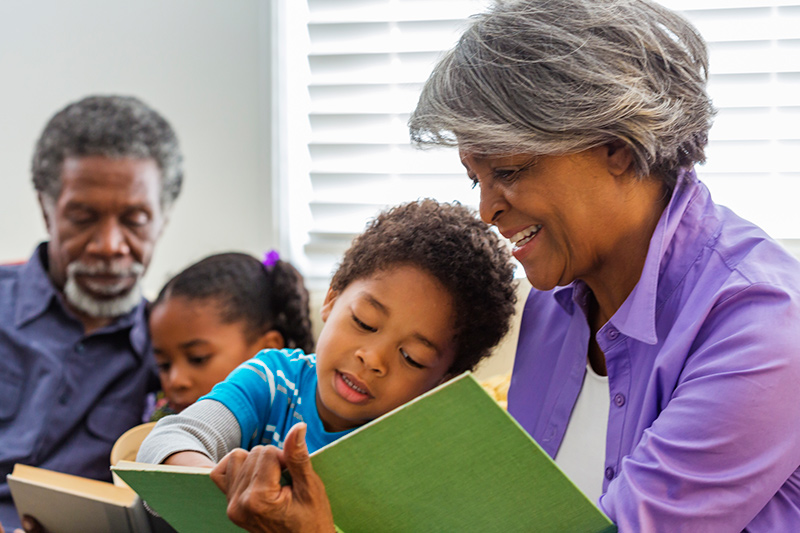Baby boomers are used to embracing grandparenting head on. Some of us have moved across the country to be with our grandchildren; others regularly bridge distances via FaceTime and Skype; many take pride in kayaking, rock climbing, jumping on trampolines, and doing yoga with our grandkids. Before the new coronavirus and COVID-19 came along, many grandparents were confident we could do it all. The threats posed by this new virus are humbling and present new conundrums. As schools and daycares temporarily close, many grandparents are wrestling with questions surrounding whether they can safely spend time with their grandchildren, and possibly help their adult children with childcare.
Is it safe to spend time with my grandchildren right now?
COVID-19 affects older people more severely than younger people — and children are notorious for spreading germs, notes Claire McCarthy, MD, a pediatrician at Boston Children’s Hospital and faculty editor for Harvard Health Publishing.
“To be safe, grandparents really shouldn’t be doing childcare,” says Dr. McCarthy. “Even if the child is a baby who doesn’t go out into the world much at all, it’s impossible to be sure that the baby’s parents won’t bring anything home. As sad as it is, older adults are the ones who really need to isolate themselves. In a time of crisis, it’s natural to want to be with family and help them, but in this particular crisis families need to think differently — and keep grandparents safe.”
(See the Coronavirus Resource Center for information on how the virus spreads, how to protect yourself, and who is at highest risk for serious illness.)
Staying connected and helping families
Given current public health recommendations to practice social distancing — even with beloved grandchildren — many grandparents are grappling with two questions. What can I do to stay connected with my grandchildren? How can I help their parents, who may be working from home and trying to cope with their children being home from school?
Ways to stay connected to your grandchildren
Long-distance grandparents often become incredibly skilled and creative with FaceTime, Skype, and other ways of connecting face-to-face. Those who haven’t yet developed these skills can begin building them now. Guided by the age of your grandchildren, their interests, and the nature of your relationship, you can establish a daily meet-up online to read books, play games, or do activities.
- Simply calling to chat will get old quickly. Right now the children are home from school or daycare, and missing so much of their daily routines and activities. So, step in with “Nana Academy” or “Granpa Games.” You may begin to teach a young child to recognize the letters of the alphabet, or create interesting history lessons for an older child. Show off dance steps or favorite songs from your youth and have them share theirs. Again, be guided initially by your grandchild’s interests and your own. Start with small, sure-fire activities and expand when you can. Once you get started, you are likely to discover a vast number of possibilities.
- If you have grandchildren living in more than one family, try creating a daily or weekly “cousins’ time.” Depending on ages, you can read all of them a story, or encourage the older ones, already readers, to read to younger siblings and cousins. Cousins’ time could also be an opportunity for you to share stories, perhaps from their parents’ childhoods. Or you might tell stories about it was like to live in a time before Velcro and microwaves, let alone iPhones and FaceTime.
- Break bread together. One woman I know cooks for her adult daughter, drops the food off at a safe distance outside, then goes home to get online for a virtual meal with her daughter and grandchildren.
- Ask children what they do and don’t like about their new routines, and talk together about what each person might like to look forward to. Life may not return to normal for children soon, and not knowing how long this difficult stretch will last is part of the hardship. But hopefully one day, many important aspects of our lives will resume.
How can I help my children?
Many adult children are struggling to balance work and homeschooling. Others may need a break from 24/7 childrearing. You could help by:
- Freeing up time for parents.You may decide to video chat regularly with your grandchildren, so that you can remain connected with them, but remember that your efforts will also be helping their parents. Spending a half-hour or more engaging with them daily will free up some time for the parents, and reassure them that responsibility for their children’s education and well-being during this time is not all on their shoulders.
- Considering financial help.This crisis will cost all of us financially, but will hurt some more than others. To the extent you can help and to the extent your adult kids could use your financial help, this is a way you can be there for them. It may come in the form of large cash gifts, although most of us cannot make that sort of contribution. Offering to pay for an activity or send a grandchild to camp for a week or two (assuming this becomes possible) gives the child something to look forward to, grandparent and grandchild something to anticipate together, and eases finances a bit for the parents.
- Inviting grandchildren to plan virtual celebrations and holidays with you.If a birthday is approaching, you and your grandchild might go online to find something special that can be delivered to the child’s home and opened “together.” And with Easter and Passover on the horizon, you may be able to dye Easter eggs together, and you can surely talk about the 10 — now 11 — plagues in a very real way.
We grandparents take a lot of pride in the energy, youthfulness, creativity, and love that we offer our grandchildren. COVID-19 may temporarily alter the format of our relationships with our grandchildren. This is humbling but it need not be crippling. Whether via FaceTime or Zoom or even old-fashioned telephone, there remain all sorts of meaningful and joyful ways that we can be with our grandchildren despite any distance between us.
For more information on coronavirus and COVID-19, see the Harvard Health Publishing Coronavirus Resource Center.

